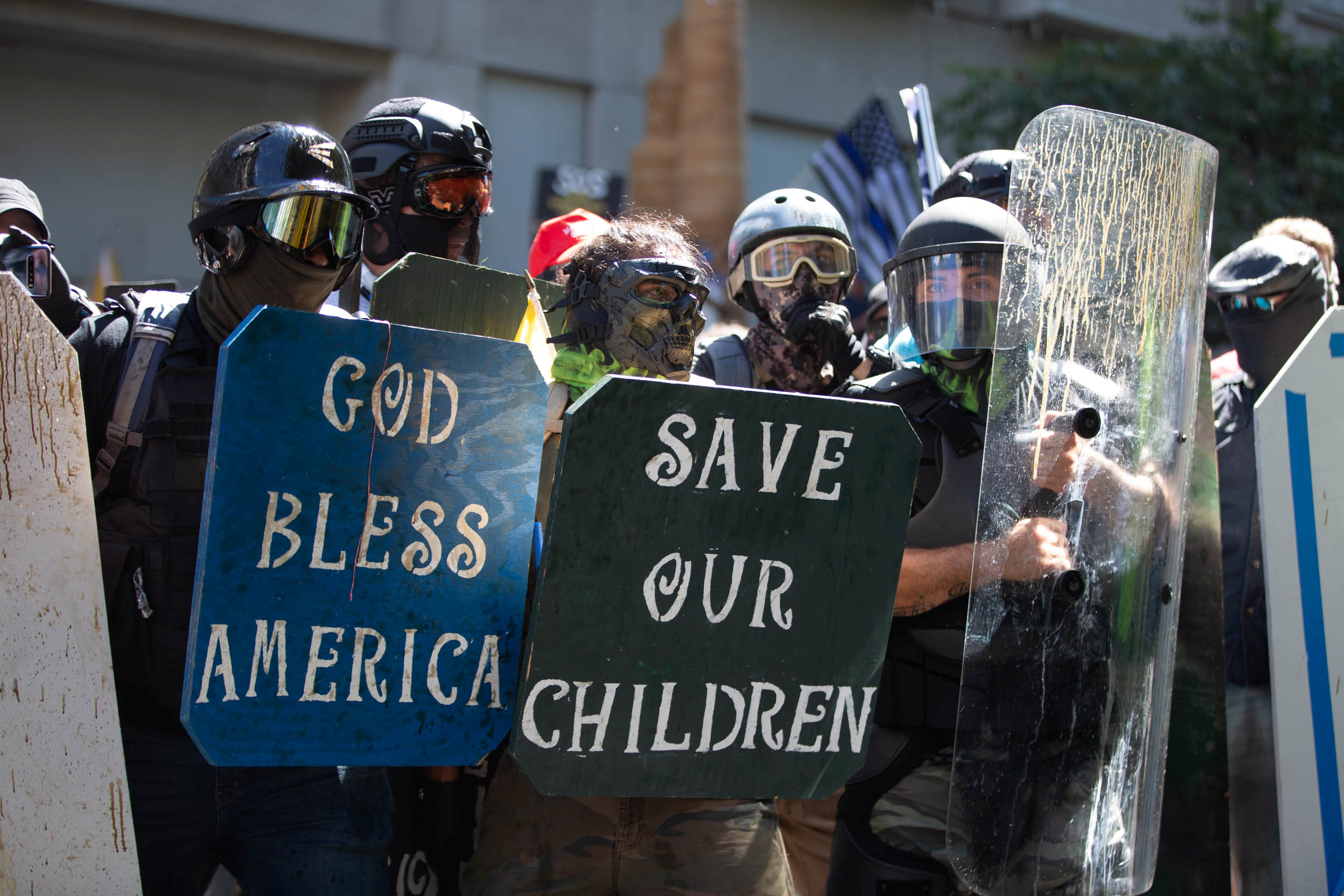Blog February 12, 2021
Rise of Conspiracies Reveals an Evangelical Divide in the GOP

After the 2020 presidential election, much of the conversation about the future of the Republican Party has focused on the division between those who side with Donald Trump and those whose loyalties lie with the party. However, there is an emerging fissure among Republicans on the subject of political conspiracy theories between those who identify as white evangelical Christians and those who do not. White evangelical Republicans are far more inclined to believe in claims about the Deep State, QAnon, and that antifa was responsible for the violence at the US Capitol.
Fraud in the 2020 Election
The assertion that the 2020 presidential election was rife with voter fraud—a claim Trump has repeated consistently without evidence—is common among white evangelical Christian Republicans.[i] But is less widely held among other Republicans. Seventy-four percent of white evangelical Republicans say the claim that there was widespread fraud in the 2020 election is either mostly or completely accurate. In contrast, Republicans who are not evangelical are far less likely to believe this claim is accurate—54 percent say it is mostly or completely accurate.
Given how widely accepted the belief in voter fraud is among white evangelical Republicans, it is not surprising that they express far greater skepticism about the fairness of the 2020 election than their co-partisans. Only 27 percent of white evangelical Republicans say that Joe Biden’s election win was legitimate, compared to more than half (56 percent) of nonevangelical Republicans. Three-quarters (75 percent) of white evangelical Christian Republicans say Biden was not legitimately elected.
Political Conspiracies
Conspiracy theories have long been a part of the American political landscape, but in recent years they have moved from the fringes of online discussion groups to take a much more prominent role in our public debates. Although conspiracy theories have found devoted followings on the left and right, Republicans have been particularly susceptible to conspiracy thinking in the Trump era. Yet, there is a considerable divide in the GOP with white evangelical Christian Republicans being much more receptive to conspiracy theories than non-evangelical Republicans.
More than six in 10 (67 percent) white evangelical Christian Republicans say the claim that an unelected group of government officials, known as the “Deep State,” were working against the interests of the Trump administration is mostly or completely accurate. The theory of the Deep State holds significantly less influence among nonevangelical Republicans, only 52 percent of whom say this claim is accurate.
White evangelical Republicans are also far more likely than other Republicans to believe that antifa, an antifascist activist group, was primarily responsible for the attack on the US Capitol. Despite the well-documented evidence showing that Trump supporters broke into the US Capitol, a majority (60 percent) of white evangelical Republicans believe the claim that the attack was carried out by antifa. Only about four in 10 (42 percent) Republicans who are not evangelical Christian believe it was antifa who attacked the Capitol.
There is a smaller gap between white evangelical Republicans and other Republicans in views about QAnon. White evangelical Christian Republicans are 6 percentage points more likely to believe in the accuracy of the claim that “Donald Trump has been secretly fighting a group of child sex traffickers that include prominent Democrats and Hollywood elites” (31 percent vs. 25 percent, respectively).
Why White Evangelical Republicans Might Embrace Conspiracies
One possible explanation for why white evangelical Christian Republicans are more likely to embrace conspiracy theories is their affinity to Trump. Trump played an active role in promoting misinformation about the existence of fraud in the presidential election, and engaged in conspiratorial thinking himself on numerous occasions. Fifty-nine percent of white evangelical Republicans say they trust Trump “a lot” to do what is right for the country, while only 36 percent of nonevangelical Republicans say the same.
Another reason may have to do with the drastic differences in the social environment between white evangelical Republicans and other Republicans. Seventy-three percent of white evangelical Republicans say that a lot of their friends voted for Donald Trump in the 2020 presidential election. In contrast, only 49 percent of nonevangelical Republicans report that a lot of their friends supported Trump.
Importantly, being connected to a particular congregation does not reduce the propensity for conspiracy thinking. White evangelical Protestants who report being a member of a specific church are about equally likely to embrace the QAnon conspiracy theory, that Trump is fighting a child sex trafficking ring, as those who do not claim formal membership in a church (28 percent vs. 25 percent, respectively).
[i] For this analysis, self-identified Republicans and independents who report that they leaned towards the Republican Party were combined to ensure that the sample sizes for all the subgroups were sufficient.
Note: This piece was updated on February 22, 2021 to correct a coding error.








